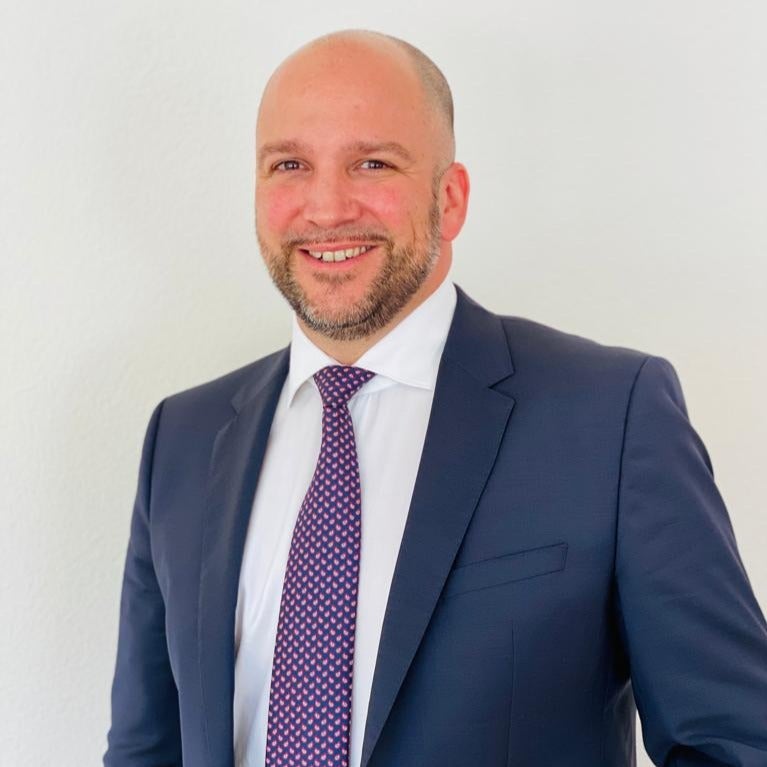
Oliver Jaberg
Deputy Chief Legal & Compliance Officer and Director of Integrity & Anti-Doping
FIFA
Oliver Jaberg was driving to FIFA’s offices in Zurich when his phone rang. His wife was frantic: “Have you heard the news? Football officials have been arrested at the hotels.” Indeed, the authorities had raided the famous Hotel Baur au Lac before Jaberg had finished his 6:30 am commute.
It was only a few days before FIFA’s 2015 annual general meeting where the entire football community gathered to plan the organization’s next steps.
As Jaberg was arriving at the office, the front desk informed him that representatives from the Swiss attorney general’s office wished to speak to him. “That was the starting point of me becoming very actively involved in these matters in Switzerland and jurisdictions all over the world,” he recalls. “Five years later, we can say FIFA has come a long way.”
Credibility, transparency, and accountability
The biggest transformation Jaberg has seen since that morning is a cultural shift at FIFA. “FIFA has undergone a very thorough and comprehensive governance reform process over the past years,” he says.
Following the election of Gianni Infantino as FIFA President in 2016, the organization established a comprehensive governance reform process that built the basis and set forth its compliance path. As the international governing body of association football, FIFA’s membership consists of 211 national associations from nearly every inhabited continent. Establishing a common culture of integrity among them was paramount. In order to reach its member associations, FIFA also launched a variety of different international initiatives and partnerships to strengthen good governance and compliance, including a compliance handbook which facilitates the implementation of a compliance program at a national level.
The compliance program follows the classic three-line model of defense:
- Establish processes, tools, and guidelines.
- Embed leadership, training, objectives, and decision-making.
- Evaluate auditing, monitoring and reporting, and testing.
FIFA’s Audit and Compliance Committee consists of independent members, all of whom are subject to integrity and background checks. The committee oversees the newly established compliance department.
A confidential whistleblower system was established to encourage a culture of speaking up when things look amiss. Special attention was paid to income-generating activities, such as media rights, sponsorships, and ticketing.
The compensation of top management, including the president and secretary general, is determined by an independent body, which follows written protocols, and is released publicly.
The major governance overhaul was overseen by Jaberg together with senior colleagues and experts at FIFA. At the same time he was operationally leading the investigation. As an organization, FIFA doubled down on compliance. It hired its first-ever chief compliance officer to oversee a modern and efficient compliance program.
During FIFA’s most recent Compliance Summit, former US Attorney General Loretta Lynch praised FIFA for its compliance turnaround during a keynote speech — only a few years after she condemned the corruption of “the beautiful game.”
An international (and analytical) perspective
Jaberg was born and raised in Switzerland and spoke Spanish at home with his mother who emigrated from Spain. From an early age, he would take international trips to visit family outside Switzerland. At the same time, he was playing sports, utilizing the mountains around him for skiing and snowboarding, the ice for hockey, and the bright summers for football and tennis.
As a center forward on the hockey team, playing at the highest amateur level in Switzerland, he enjoyed the speed and intensity of the game and the shifting odds. He says the position is not dissimilar from being in an in-house counsel leadership role who needs to see across the company, set the strategy, lead, take decisions quickly and provide opportunities for teammates.
Like many young students, he was unsure of his path, but he knew he wanted to work in an international environment that would provide opportunities for growth and connect to his passion for sports. Law school seemed like the best way to position himself for a yet unspecified role. At the University of St. Gallen (HSG) in Switzerland, he enjoyed the analytical nature of considering and assessing problems, paired with the focus on practical aspects of the legal profession.
Years later, after admission to the bar in Switzerland his ambiguous interests crystallized into the perfect fit of an international position at the world football governing body.
Getting to know… Oliver Jaberg
What does self-care look like to you these days?
Unwinding is basically spending time with my family and my friends. Being able to spend time outside away from the computer and in nature is so worth it. We love to go into the mountains to go snowboarding or skiing.
What advice do you have for in-house counsel facing an overwhelming compliance challenge?
Also regarding crises — including legal and compliance challenges — it is essential to have a strong, diverse, committed, and talented team to address the challenges in the best way possible as they come up. Moreover, clear communication and instructions — to in-house colleagues, external counsel, and further stakeholders — are key as this helps to avoid misunderstandings and keep focus on what really matters.
In fact, good proactive communication is in my opinion the basis to efficiently implement the actions required to deliver the best possible output to successfully navigate through the challenges, address them appropriately, and mitigate related risks. Eventually, and once crises has been successfully resolved, it is in my opinion helpful to summarize the key findings and to adopt strategies and processes (including internal policies and frameworks) so as to mitigate the risk of the challenges materializing again in future. In other words, learn from the challenges, correct and improve what is necessary so as to do better in the future.
After all, whilst good to avoid them where possible, challenges and crises can sometimes be used as an opportunity to bring about necessary fundamental changes.
What is your favorite international football highlight?
I have many fond memories of unforgettable football matches with outstanding players and beautiful goals, of friendship and joy. But purely from a sporting perspective, for me personally, being also a Spanish national and big admirer of the tiki taka football of FC Barcelona and the Spanish national team during their golden eras, with fantastic players such as Xavi, Iniesta, Pique, Busquets, Torres, and many others, my highlights are the finals of the 2010 FIFA World CupTM in South Africa and of the UEFA EURO 2012 in Poland and Ukraine, when the Spanish team won both competitions with amazing football.




